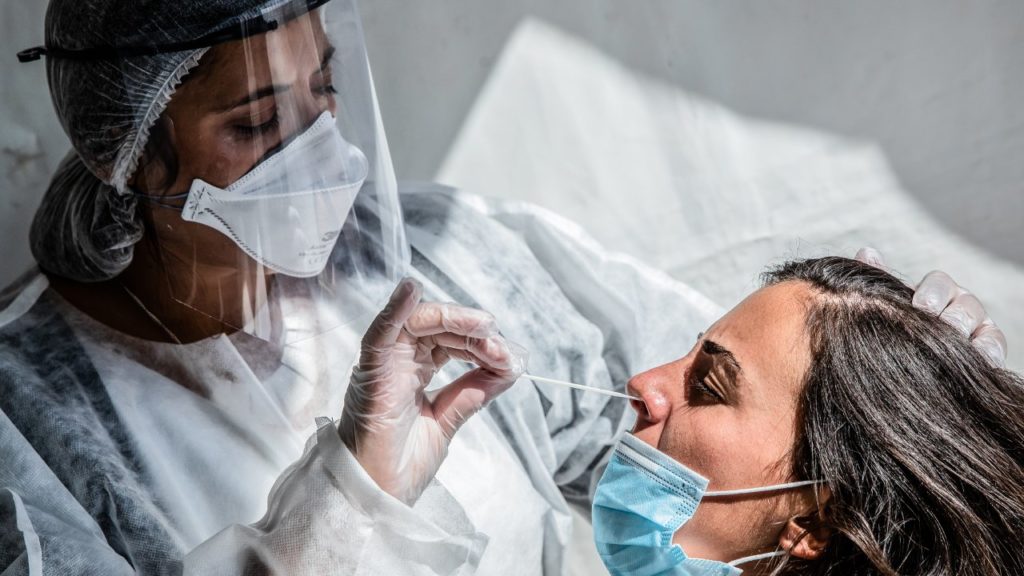Starting from today, the Brussels municipality of Saint-Josse-ten-Noode is offering free PCR tests to its residents, as part of its Covid plan for the start of the school year.
"It is important that we provide as many opportunities as possible for everyone to live without risk," said Saint-Josse mayor Emir Kir on Flemish radio on Monday.
"We must give everyone an equal chance, and ensure work and life in our municipality," he added. "Something closer is easier and more accessible."
People in Saint-Josse will be able to get a free PCR test between 9:00 AM and 5:00 PM, every Monday, Tuesday, Wednesday and Saturday, from today until Thursday 16 October.
#coronavirus #centrededépistage #screeningscentrum #SJTN ➡ Centre de dépistage (test PCR) / Screeningscentrum (PCR-test) ? 23.08 > 16.10.2021 | 09:00 - 17:00 Tous les lundis, mardis, mercredis & samedis Elke maandag, dinsdag, woensdag & zaterdag GRATUIT / GRATIS pic.twitter.com/ByOnoWYTR6
— ilovesaintjosse (@sjtnbrussels) August 23, 2021
Additionally, the municipality's vaccination centre will also reopen on Thursday, and the vaccination bus will be driving through Saint-Josse starting today, announced Kir.
The low vaccination coverage in Brussels is worrying, and the difference in rates between different municipalities is also causing some tensions, as calls are rising to let those who reached the 70% vaccination threshold decide about their own relaxations.
Related News
- Time for Brussels municipalities to decide on own relaxations, says mayor
- Brussels should 'make life as difficult as possible for the non-vaccinated,' says expert
- A drink at the bar? Yes, in Flanders, Wallonia. Not yet in Brussels
According to Kir, there are two possible explanations for the low rate in Saint-Josse, where only 48% of adults are fully vaccinated (compared to 75% in Auderghem, for example).
"We have the youngest population in the country. In the vaccination campaign, the weak and the elderly population were the first to be vaccinated," he said.
"Most of our residents were not candidates then. That is changing now that the youthful population is getting their turn," Kir added.
Secondly, poverty also plays a role, he says.
"That is a real problem, and poverty does not offer the same opportunities in access to healthcare," he said, adding that teams have been deployed on the ground to get the rates up.
Despite the Capital-Region's difficulties in getting its population vaccinated over the past few months, Kir expects vaccination rates in Brussels to rise in the coming weeks.
"We are also going to have good numbers," he said. "Our numbers now aren't that bad either, a lot of neighbouring countries have numbers like that."
As of Monday 23 August, 60% of Brussels adult population is fully vaccinated, compared to 88% in Flanders and 77% in Wallonia, according to the latest figures by the Sciensano national health institute.

